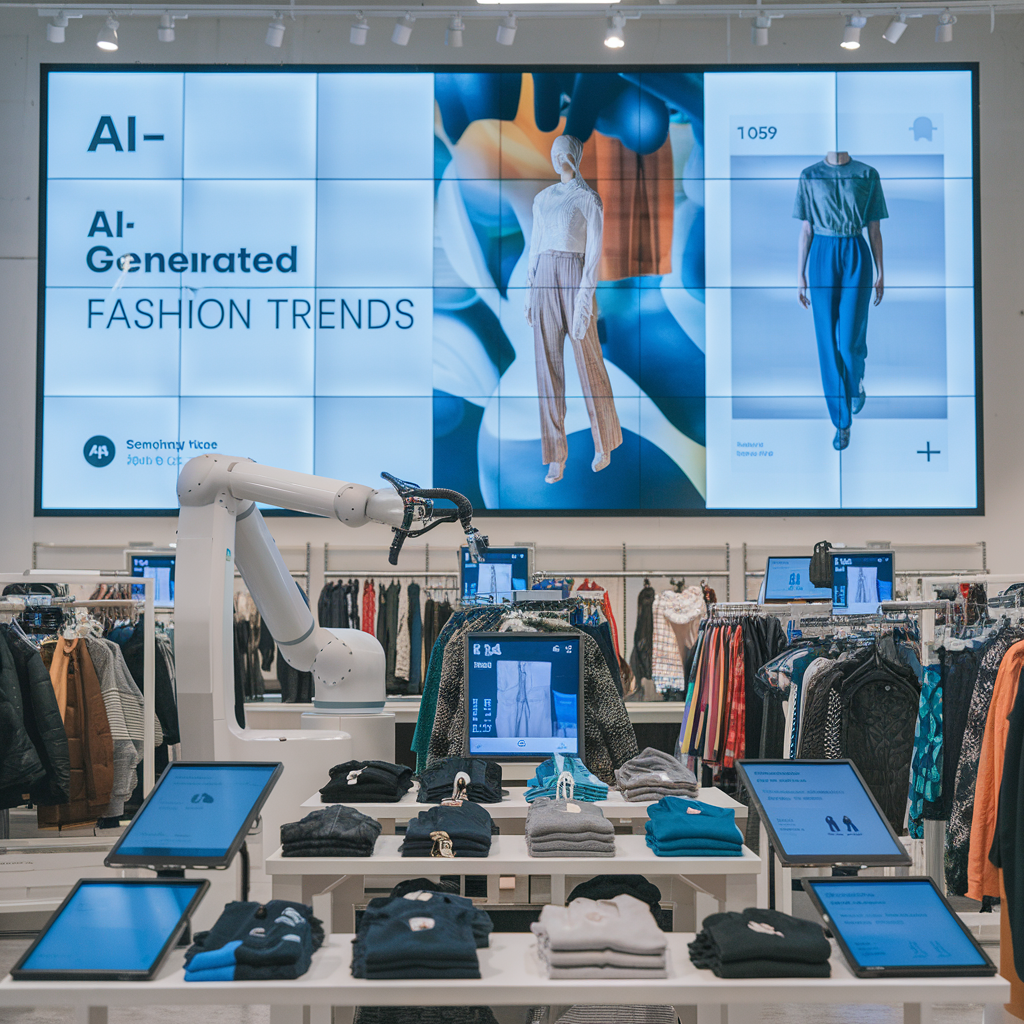The Age of AI in Retail: A Strategic Imperative
The retail sector is undergoing an unprecedented transformation. Artificial Intelligence (AI) is no longer a futuristic concept—it is an essential pillar of strategic retail excellence. Organisations that neglect to integrate AI into their sales strategies risk being eclipsed by competitors who harness AI to cultivate superior customer experiences, optimise operational efficiencies, and drive sustained profitability.
This discourse explores why AI is indispensable for high-end retail, the sophisticated AI-powered solutions that regional sales managers should prioritise, and the strategic roadmap necessary for future-proofing their operations.
1. How Can AI Improve Customer Personalisation in Luxury Retail?
Affluent clientele and discerning consumers demand unparalleled levels of personalisation. Traditional marketing methodologies lack the agility to provide tailored experiences at scale, whereas AI-driven solutions enable luxury retailers to curate bespoke engagements that align with individual preferences and behaviours.
AI-Driven Personalisation Strategies:
- Advanced Recommendation Engines: Leveraging AI to analyse transactional data, browsing history, and real-time engagement enables precise product recommendations. Premium solutions such as Amazon Personalize, Dynamic Yield, or Adobe Sensei drive significant customer conversion and retention.
- AI-Enhanced Conversational Interfaces: AI-powered chatbots and virtual assistants, including Drift, ChatGPT, and Zendesk AI, facilitate 24/7 premium client assistance, augmenting the high-touch service expectations synonymous with luxury retail.
- Dynamic Pricing Intelligence: Solutions like Prisync and Omnia Retail apply real-time data analytics to tailor pricing structures dynamically, maximising revenue while maintaining brand equity.
2. How Does AI Optimise Inventory and Supply Chains for Retailers?
Luxury retail mandates impeccable inventory precision. AI-driven inventory management mitigates the risks of overstocking and stockouts by forecasting demand fluctuations with unparalleled accuracy, ensuring optimal resource allocation and reducing capital inefficiencies.
Strategic AI Interventions:
- Predictive Demand Modelling: Tools such as Blue Yonder and o9 Solutions employ AI to discern purchasing trends, anticipate seasonal demand shifts, and refine procurement strategies.
- Intelligent Warehousing & Logistics Automation: AI-infused robotics, exemplified by GreyOrange and Locus Robotics, redefine operational efficiency by minimising manual interventions and enhancing accuracy.
- AI-Powered RFID & IoT Connectivity: Real-time asset tracking solutions empower regional managers with complete visibility over inventory, facilitating strategic stock distribution across flagship and boutique locations.
3. Can AI Improve Customer Service in High-End Retail?
In high-end retail, service excellence is non-negotiable. AI augments customer engagement by synthesising real-time sentiment analysis, automating routine inquiries, and proactively addressing client needs.
AI-Driven Service Enhancements:
- Conversational AI & Voice Assistants: Google Dialogflow and IBM Watson Assistant enable sophisticated natural language interactions, ensuring seamless, brand-aligned client communications.
- Sentiment Analysis & Customer Insights: Platforms such as MonkeyLearn and Lexalytics deconstruct feedback loops, equipping sales teams with actionable intelligence to refine service strategies.
- Automated Returns & Exchange Protocols: Solutions like Returnly enhance post-purchase experiences, reinforcing customer trust and brand loyalty.
4. What Role Do Visual Search and AR Play in Retail?
AI-powered visual search and AR integrations are revolutionising luxury retail by elevating discovery experiences and enhancing the purchasing journey.
AI Innovations for Experiential Retail:
- Visual Search Capabilities: Technologies such as Google Lens and Syte empower customers to discover products seamlessly via image-based recognition.
- Immersive AR Shopping Experiences: Pioneering brands like IKEA and Sephora deploy AR tools to enable clients to visualise products within their environments prior to purchase.
- AI-Driven Image Recognition: Solutions such as ViSenze and Clarifai refine search functionalities, minimising friction in the discovery-to-purchase pipeline.
5. How Can AI Automate Marketing and Sales for Better Conversions?
AI-driven marketing automation enables luxury brands to orchestrate hyper-targeted campaigns that resonate with elite clientele.
Strategic AI Applications in Marketing & Sales:
- Predictive Consumer Analytics: Platforms such as Salesforce Einstein and HubSpot apply AI to forecast purchasing behaviours, enabling the personalisation of outreach strategies.
- Automated Omnichannel Engagement: AI-powered marketing platforms like Klaviyo and Omnisend deploy bespoke, context-aware email and SMS campaigns, enhancing customer lifetime value.
- AI-Enhanced Ad Optimisation: Solutions such as Google Smart Bidding and Facebook AI refine ad placements through real-time data analysis, ensuring optimal campaign performance.
6. How Does AI Strengthen Fraud Prevention and Cybersecurity?
With luxury transactions often attracting fraudulent activities, AI provides an indispensable layer of security, safeguarding both financial and reputational assets.
AI-Driven Security Enhancements:
- Fraud Detection Algorithms: Riskified and Signifyd deploy sophisticated machine learning models to detect fraudulent transactions, mitigating chargeback risks.
- AI-Powered Payment Security: Mastercard’s Decision Intelligence and Visa Advanced Authorization proactively assess transactional risks to prevent fraudulent activities.
- Biometric Authentication & Behavioural Analytics: AI-infused security mechanisms authenticate customers based on behaviour patterns, fortifying transactional legitimacy.
7. What Is the Future of AI-Powered Smart Stores?
Luxury retail spaces are embracing AI-powered innovations to craft seamless, technology-enhanced shopping experiences.
Pioneering AI Deployments in High-End Retail:
- Smart Store Implementations: Amazon Go and Walmart’s Intelligent Retail Lab illustrate how AI enables frictionless, cashierless retail experiences.
- Facial Recognition & Biometric Transactions: Premium solutions such as Face++ and NEC redefine convenience and security within brick-and-mortar locations.
- Real-Time In-Store Analytics: AI-powered analytics platforms such as RetailNext provide deep insights into customer behaviours, optimising store layouts and staffing strategies.
How Can Retailers Successfully Implement AI in Their Sales Strategy?
1. Conduct a Comprehensive AI Readiness Assessment
Retail executives must identify strategic priorities and assess AI capabilities that align with organisational objectives.
2. Partner with Best-in-Class AI Providers
Engaging with leading AI technology partners ensures seamless integration and optimal return on investment.
3. Foster an AI-Literate Workforce
Upskilling employees in AI competencies empowers sales teams to leverage AI-driven insights effectively.
4. Pilot AI Initiatives & Scale Gradually
Implement AI solutions in phased rollouts, evaluating impact before enterprise-wide deployment.
5. Continuously Optimise AI Strategies
AI is an evolving domain—regularly refining AI applications ensures sustained competitive advantage.
Conclusion: Why Retailers Must Act Now
The future of luxury retail belongs to those who embrace AI-driven innovation. From hyper-personalised client interactions to predictive analytics and next-generation smart stores, AI is an indispensable asset for regional sales leaders who seek to maintain a competitive edge.
By integrating AI-powered strategies, high-end retail brands can craft intelligent, data-driven sales ecosystems that redefine consumer engagement, optimise operational precision, and drive long-term growth in an increasingly AI-dominated landscape.

